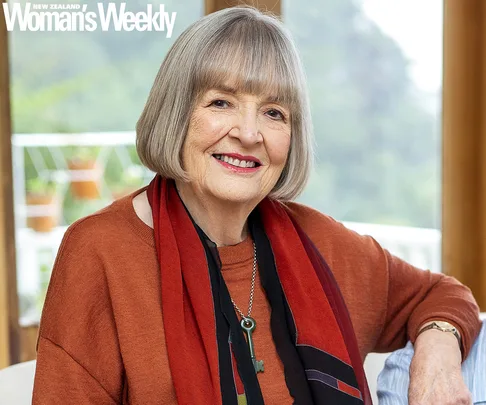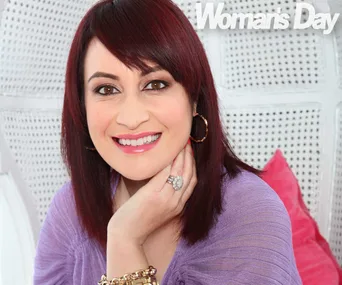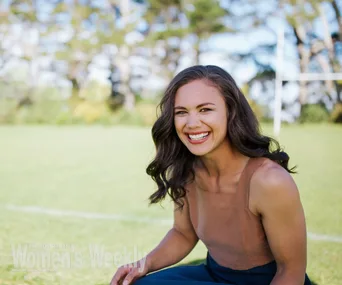When asked to describe herself in five words, Wellington writer Linda Burgess offers just three: “old, nearly died”.
The first is debatable, the second a matter of fact.
The 70-year-old contracted bacterial meningitis just over a month ago. Rushed to hospital by ambulance, she spent the first of eight days in the ward surrounded by medical staff in full protective gear.
Daughter Gemma (42) was told to prepare for the worst, son Benedict (44) hastily flew down from Auckland.
“I don’t remember a lot,” she says.” I do know I kept asking them if I was going to die… and the next thing I remember is waking up to see Benedict at the end of the bed beaming at me, looking kind of relieved.”
Her brush with death couldn’t have come at a less convenient time.
The launch of her new book, Someone’s Wife, A Memoir of Sorts, was just weeks away, and a series of media engagements were scheduled.
Still, Linda – a prolific essayist, novelist, scriptwriter, reviewer, mother and grandmother – is no stranger to the concept of a life interrupted.
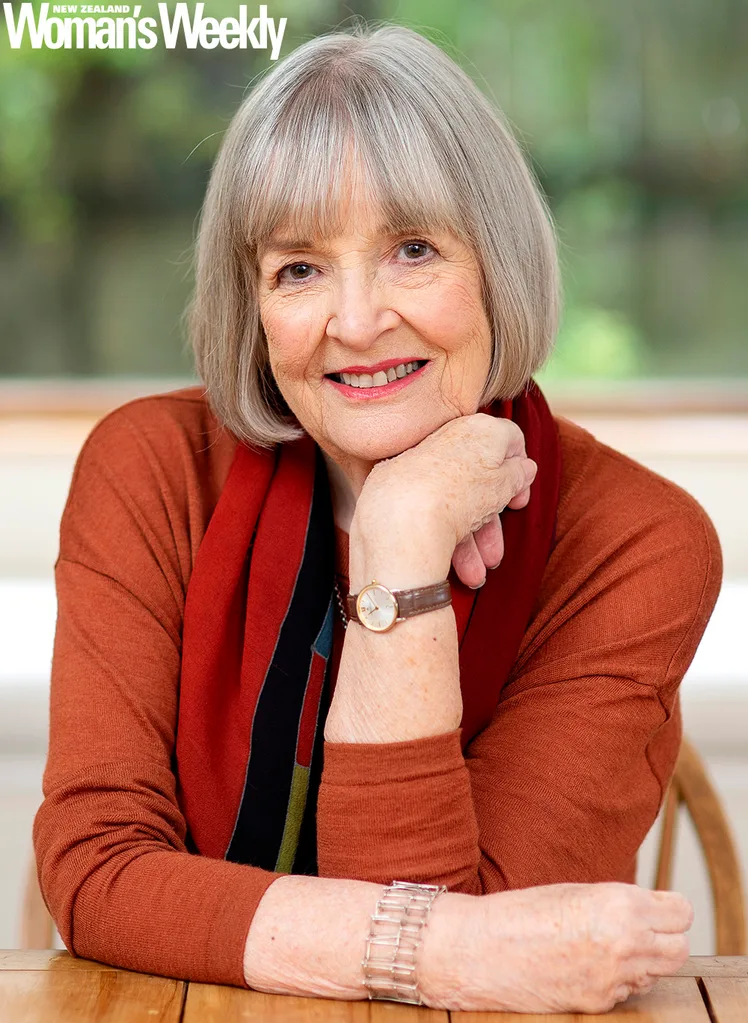
The heartbreak of losing her perfect bright-eyed son Toby at three months to cot death; watching helplessly as her then-All Black husband Bob Burgess was stretchered unconscious off a rugby field; alerting an employer to a suicide… It’s all there in the new book, and wee Toby’s death is still raw decades later.
“It’s the worst thing, losing a child,” she tells the Weekly, the day after the launch that wasn’t.
“It was terrible. And I still see babies in their pushchairs now that look dead. I want to say to the parents, ‘Do you realise your baby has died?’ Even though of course it hasn’t.”
Linda and Robert, as he is more often called, met at Massey University. Both went on to teach, despite Robert having a degree but not a teaching qualification.
“They didn’t care a stuff,” Linda says. “The fact he was a provincial rugby player was enough.”
Robert, a gifted first five-eighth, made headlines in 1970 when, on moral grounds, he turned down a chance to trial for the All Blacks ahead of their apartheid-era tour of South Africa, but he made it into the team the next year.
In 1972, he was selected for a four-month tour of England, Scotland, Wales, Ireland, France and the US.
Linda, then in her early 20s, decided to go too, which was an unusual move in the days before “WAGs” (wives and girlfriends) of sportsmen became a media and public fascination.
“I didn’t do it as any sort of statement, I wasn’t blazing a trail,” she says. “I just went because I had time. I had saved up for the fare and
had some spending money.”
She stayed with friends, and with her brother Michael in Yorkshire, and was determined not to be a nuisance.
“It didn’t occur to me that I could have stayed in the All Blacks hotel, and anyway the players would often share a room. Robert often shared with Sid Going. I remember going into the bedroom once quite early and Sid was still in bed.
“Well, he pulled the sheet up to his eyes. I thought, ‘Oh God, he’s got his teeth out or something.’ But no, he was shy, he was a Mormon.”
Her presence was not always welcome.
“Some of the players were furious. Let’s face it, they basically slept their way around Europe. I remember one of the wives saying to me, ‘At least I know I can trust him.’ Well, she shouldn’t have!”
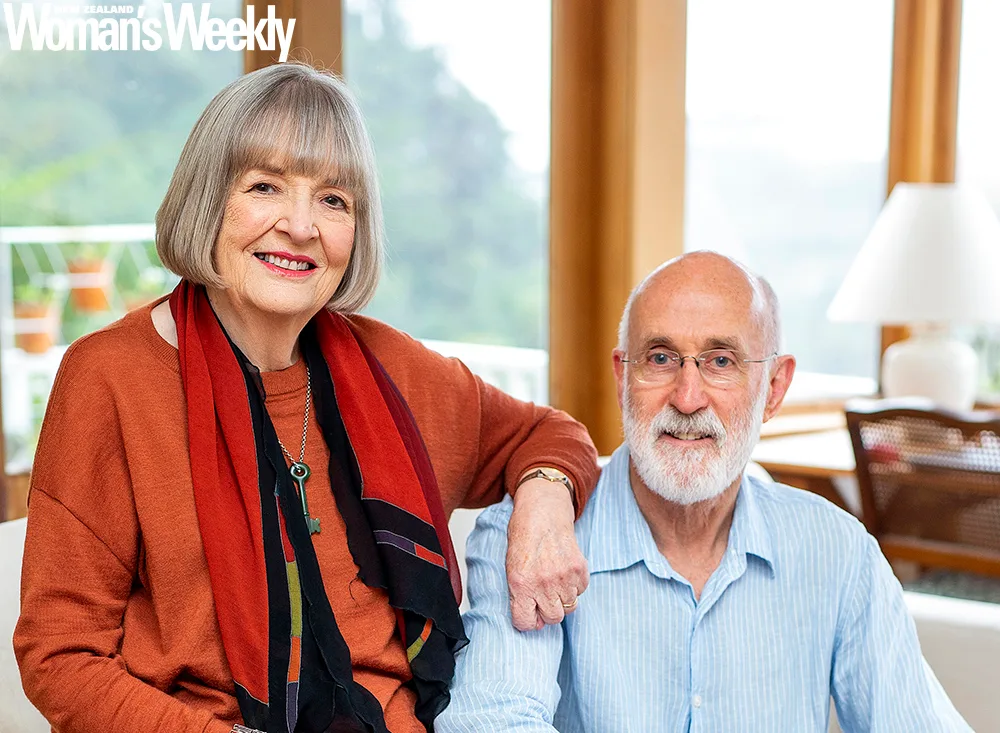
Linda, now a grandmother of four, was one of four children born to a sports-mad Pahiatua bank-manager dad and a stay-at-home mum.
“Bank managers’ wives didn’t work!”
She says she’s never “got” rugby.
“I don’t understand it, I fail to get grabbed by it. I think it’s a really boring game, unless they are running effortlessly down the field with the ball in their hand!”
She notes she’s almost the same age – “two weeks younger” – as Prince Charles, and has always been a fan, even though she and her siblings were encouraged by their somewhat cynical father to view Charles “as what our family called ‘a little drip'”.
In one of the essays that make up her memoir, she writes, “I felt quite disconcerted when, seeing a documentary about the royal family when Charles and I were about 15, I discovered that with his bashful eyes and his hand slipped into the pocket of his tweed jacket, he was unsettlingly sexy.”
So the British royal family features in the book, alongside tales of a New Zealand childhood and vignettes of later life, both here and in France during Robert’s three years playing for Lyon Olympique Universitaire.
She has written eight books, both novels and non-fiction, in a publishing career that began in the Pixie Pages of the Weekly, with her numerous contributions once earning her enough points to win a book.
